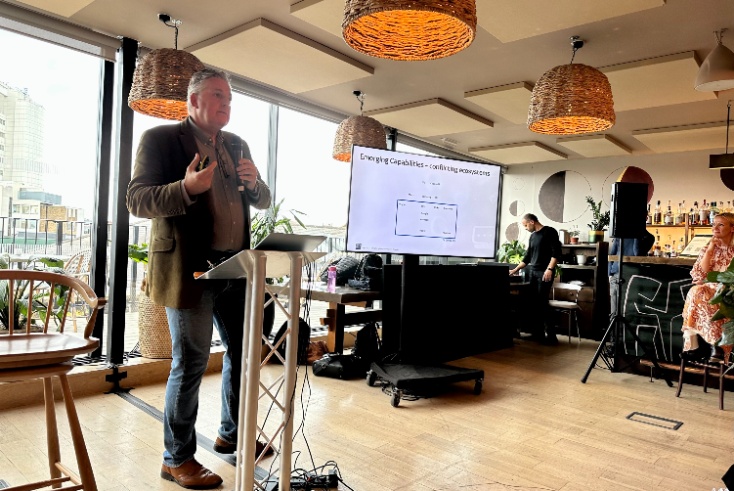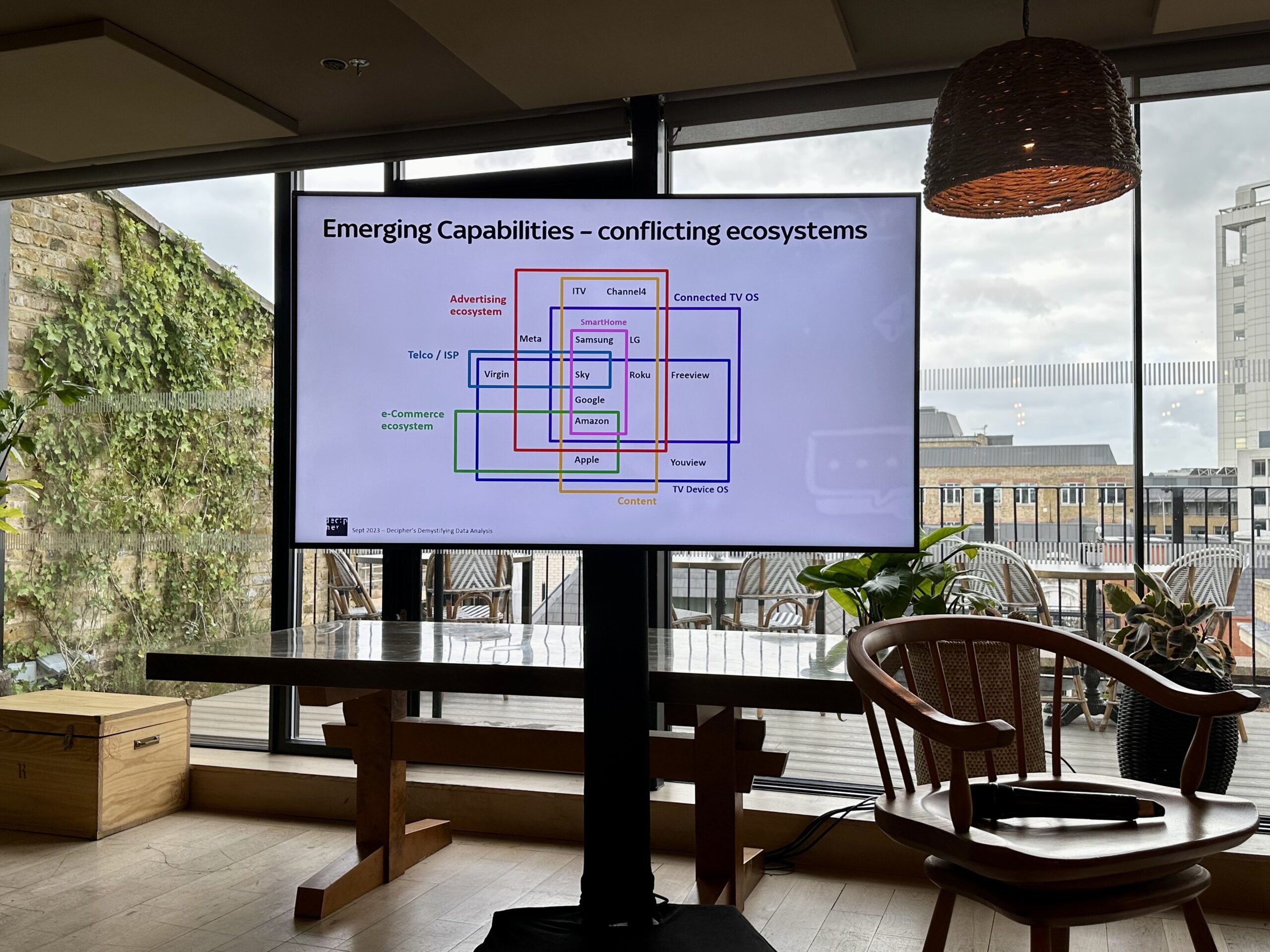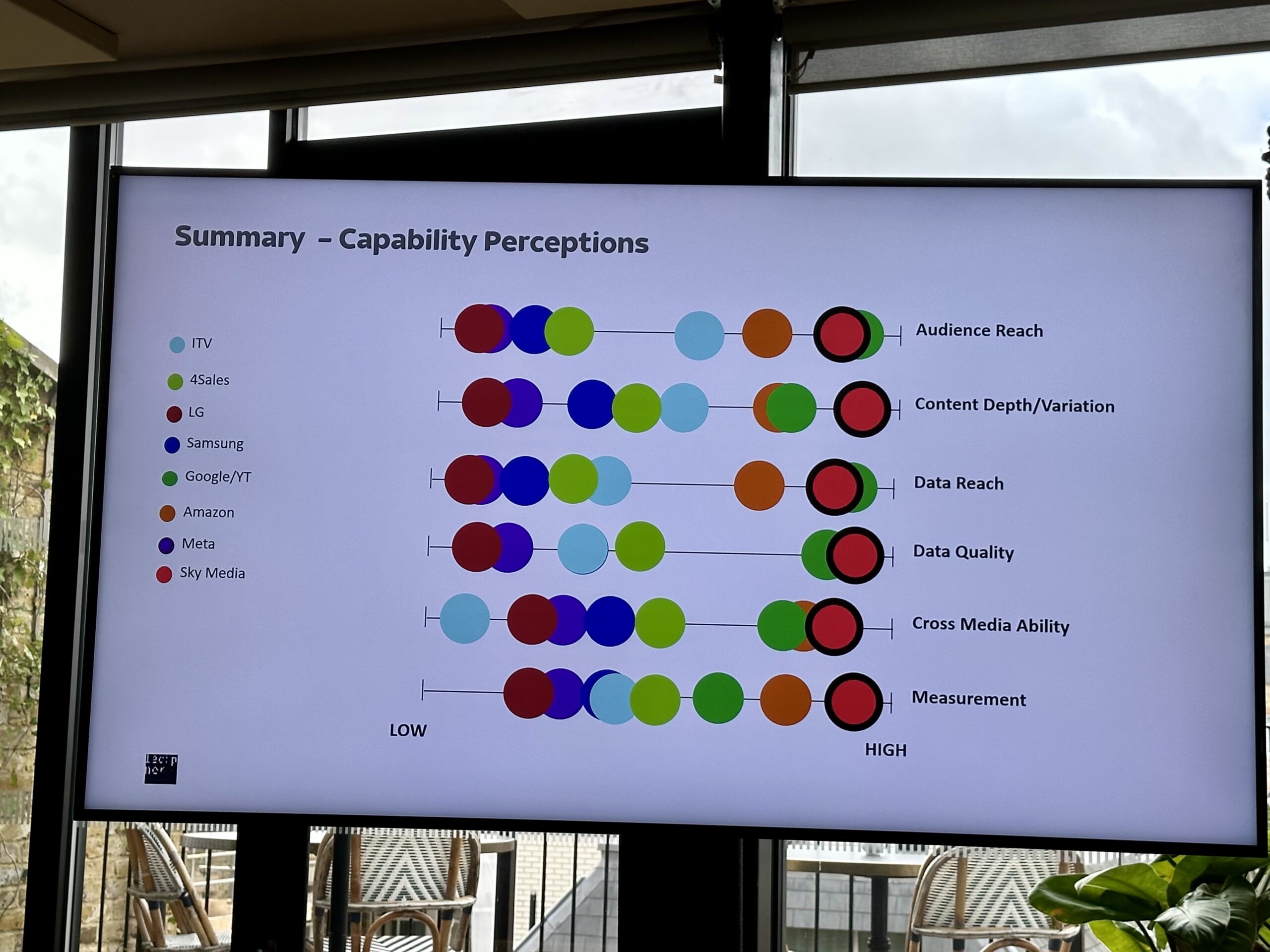Connected TV: ‘keep your eye on Google’

We are entering the age of “reaggregation” of media data in the coming years, a Sky Media event has heard, with online media companies able to “mark their own homework without validating at all”.
Nigel Walley, CEO of media strategy consultancy Decipher, told Sky Media’s Demystifying Data event last week that the commercial future looks bright for players that can start to put datasets back together from a very fragmented landscape into one with smaller, aggregated blocks.
He said: “We’re looking for the mechanisms of validation to increase. We’ve had too long where players have marked their own homework without validating data at all. We’ve had too long with poorly validated data.”
However, the ethical questions around data collection and usage will only increase in the coming years, Walley added, as the increasing popularity of smart devices that can feature new opportunities to watch video, such as smart speakers and connected cars, will create new datasets with opportunities for advertisers and media owners.
“Can we show that we can absorb the data, deal with it ethically, and turn it into something of quality for the clients?” Walley asked the audience of media agency strategists and research specialists at the event in central London.
At present, companies that “own the router” such as Sky and Virgin have a huge advantage in being able to make sense of online TV-watching data, Walley explained. “If you own a router, you’re in a very strong place to bring in more points of verification,” he added.
Google’s TV journey: ‘from risible to credible’
Google, meanwhile, have gone from being “risible to credible” as players in the TV market, Walley said, before predicting that Google TV is going to be an “important” platform for the TV advertising industry.
This is because Google puts software into 12 of the top 14 connected TV brands in the market and, because they own so much connected TV infrastructure, its software will “migrate up” from Android mobile devices into a “Google-branded TV”.

“So keep your eye on Google; we have to accept that they, along with some young Internet giants, are still struggling with the deprecation of the cookies. [TV] is not an ecosystem that they’re in total control of; this is not comfortable territory for Google as they shift from total dominance for some areas into a TV space in which they are to a certain extent, ‘newbies’ (although, from a software point of view, very capable ‘newbies’).”
Traditional broadcasts like Channel 4 and ITV, on the other hand, need to improve their credibility when it comes to using data about people who use their respective video-on-demand platforms, ITVX and Channel 4. Walley raised concerns about the quality of data that is being collected, the broadcasters’ ability to validate certain data points, and make sure their login data is “clean”.
He added: “Yes, they claim to have millions of logins, I know they have got five of mine, none of which are the right ones. We do lots of consumer research around this; I do worry about the the depth and the quality of some of the login data from the broadcasters.”

However, even if those issues were to be resolved, Walley doubted whether any single broadcaster would be big enough in what is developing as a global connected TV market with huge players.
“I think a single broadcaster on their own, even with multiple content, outlets, and multiple channels, are probably too small to be real, credible players in what we see – it’s a merging ecosystem of large players… I come back to this validation of data [point], they don’t have the ability to triangulate data from multiple points, they don’t have the ability to to make sure their login data is clean.”
‘Dirty data’
In terms of measuring audiences, TV manufacturers with growing advertising business, such as Samsung Ads and LG Ads, have build automatic content recognition tech into newer sets which effectively carry out ‘Shazam for TV’, namely listen to what people are watching by matching the TV’s audio against unique audio data for each unit of content.
However, Walley warned against using “incredibly dirty data”.
“You’ve got a company who’s going to make guesses about what’s coming onto a TV screen, based on their ability to capture something they can hear on the screen,” he said. “I would be very cautious. Even if it’s a great example of a new kind of data set hitting our market, we have to kind of think about the relevance. There’s also the arrival of server logs, and logins where we were slightly cautious about use of login data around connected TVs, just because it’s so sporadic, the quality of login data on its own. If you don’t have the ability to correlate it with an IP address, a full-on address, or a contract, etc, it’s very dodgy.”



